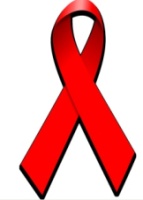World AIDS Day 2010: European Commission tops €1.3 billion invested in the fight against AIDS in the world

To fight AIDS on a global scale, EU Commissioner for Development Andris Piebalgs recently announced a 10% increase in contributions to the Global Fund to fight AIDS, Tuberculosis and Malaria (GFATM), to which the EU is already the largest donor, providing 52% of resources. The increase would allow the Commission to contribute around €1.3 billion over the period 2002-2013.
Andris Piebalgs, Commissioner for Development said that "Without a healthy population it is impossible to create inclusive and sustainable growth in developing countries to reach the Millennium Development Goals. AIDS remains one of the most deadly diseases and we have to increase our efforts in preventing the spread of this virus."
Despite the overall decrease in the number of new infections, the total number of people living with HIV worldwide continues to grow. The number of people living with HIV globally now stands at 33.4 million. Sub-Saharan Africa remains the worst affected region, accounting for 71% of all new HIV infections in 2008.
As the world's biggest donor of development aid, the European Commission remains committed to its engagement in fighting AIDS in cooperation with its partner countries all over the world.
Background on EU involvement in the fight against AIDS
EU Member States and the European Commission have provided more than $10 billion from 2002 – 2010 to the GFATM, which equals 52% of the GFATM resources. In June this year, the GFATM reported that 2.8 million people with HIV have received life-saving antiretroviral (ARV) treatment thanks to their actions. In addition, through its contribution the Commission gave access for 7.7 million people to insecticide-treated mosquito nets and provided antiretroviral combination therapy to 750,000 people with advanced HIV infection.
The European Commission is a founding member of the Global Fund. It has been providing strong political and financial support to it since 2002. The 10% increase proposal is subject to approval by the budgetary authorities of the EU and the African, Caribbean and Pacific Group (ACP).
The EU also supports its partner countries all over the world in designing and implementing their national health policies. Through this instrument the EU can help to provide longer-term and more consistent financing to combat this terrible disease.
For further information
See also MEMO/10/630















